I'm a Brit who spent 4 months at a university in Pennsylvania. Here are 8 things that surprised me about US college culture.
Mikhaila Friel

- I'm a Brit who spent four months at a college in Pennsylvania.
- I left my home in Scotland for an exchange semester at Millersville University.
In 2016, I was a student at the University of Strathclyde in Scotland.

The campus is in the heart of Glasgow, Scotland's largest city. The city has around 1.6 million residents, World Population Review reported in 2021.
Since my parents lived just 10 minutes away from the city, I stayed at home and commuted. It's something many of my peers did to save money.
Although I didn't live on campus, I got to experience my fair share of university milestones, from trying out different social clubs to experiencing the nightlife. But I also had my independence outside of campus; I had a job and friends who didn't attend Strathclyde.
When I was offered the chance to spend an exchange semester abroad, I knew it would be an eye-opening experience.
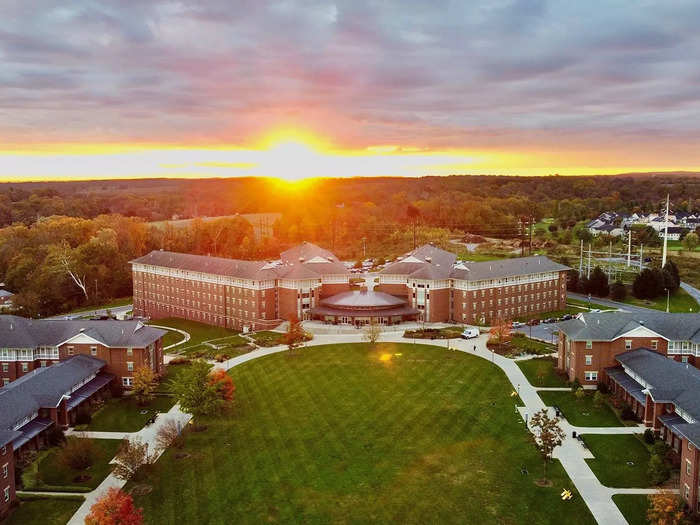
In August 2016, I embarked on a four-month exchange semester at Millersville University of Pennsylvania.
The campus is located in Millersville, a borough of just 2 square miles in Lancaster County, Pennsylvania, the university website states. Millersville has a population of around 8,367, according to World Population Review.
I knew I would face culture shock, not only because I was relocating from a city to a town. Moving to Millersville meant fully embracing college life in a way that I had never done before, from sharing a dorm room (which isn't a thing in the UK) to staying on campus on the weekends.
The first thing that surprised me was Millersville's location.
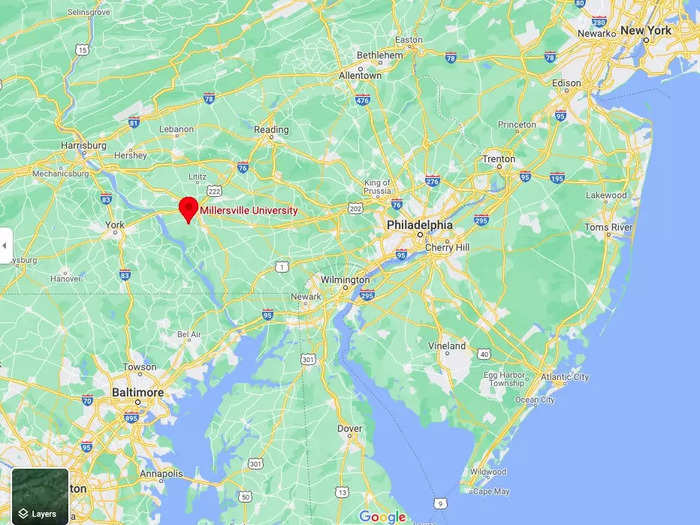
There are a total of 19 universities in Scotland, according to the Universities and Colleges Admissions Service, and 17 of the university campuses are located in cities.
So when I discovered that Millersville is a small college town, it took me by surprise. The nearest city is Lancaster, which is around 4 miles away. From Lancaster, Philadelphia is just over an hour away on the train.
Since I didn't have a car and there wasn't much in walking distance, I was restricted to staying on campus during the weekdays. This turned out to be a blessing, as I was forced to fully embrace my new home.
Millersville's Freshman Orientation Week was a lot more wholesome than Strathclyde's.
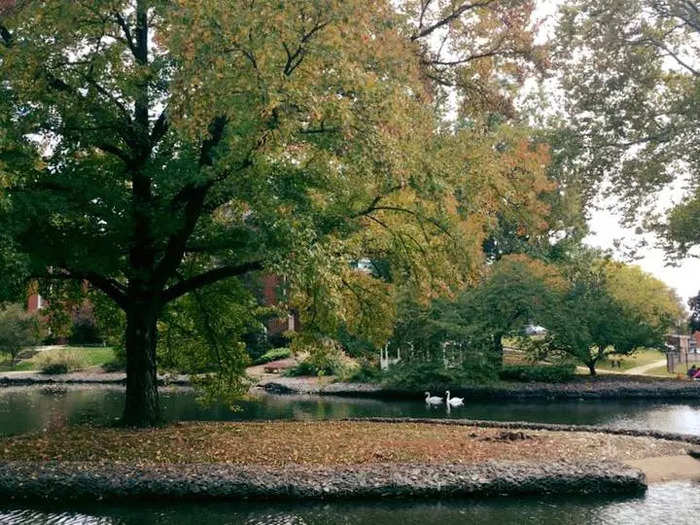
Freshman Orientation Week contained a multitude of activities to welcome freshmen and international students. Some of my favorites included a candle lighting ceremony by Millersville's lake, rock climbing, and a free outdoor concert in nearby Lancaster.
Millersville is a dry campus, meaning that even if you are of drinking age you are not permitted to consume alcohol on campus. Today one in three college campuses in the US ban alcohol, according to Landmark Recovery.
Since Britain's drinking age is 18, many activities at our Freshman Orientation Week (which is called Fresher's Week in the UK) usually involve drinking. However, I've never been a big drinker myself, so I enjoyed taking part in activities that weren't centered around it.
Unlike in the UK, my US friends weren't afraid to show school spirit.
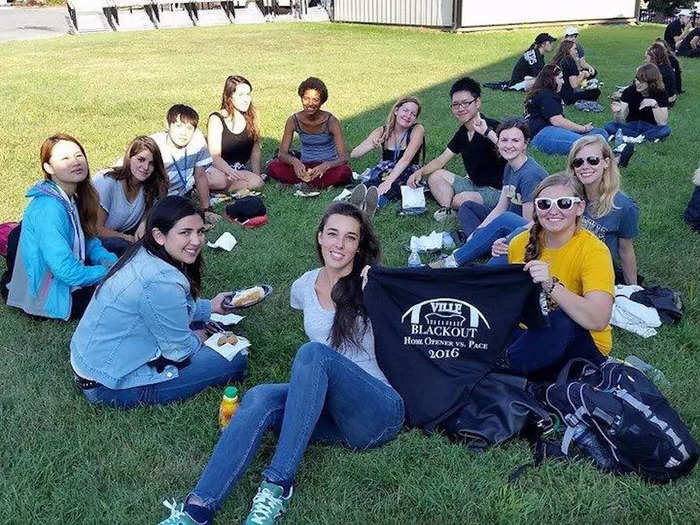
At the university store, Millersville's logo was plastered on everything, from hoodies and hats to teddy bears and fridge magnets.
And while a lot of students wore Millersville hoodies, it was not uncommon to see others wearing merch belonging to a completely different university because it was more well known or because a family member went there.
Some students in the UK wear university hoodies, but it's nowhere near as common as it is in the US.
It was also far easier to make friends.
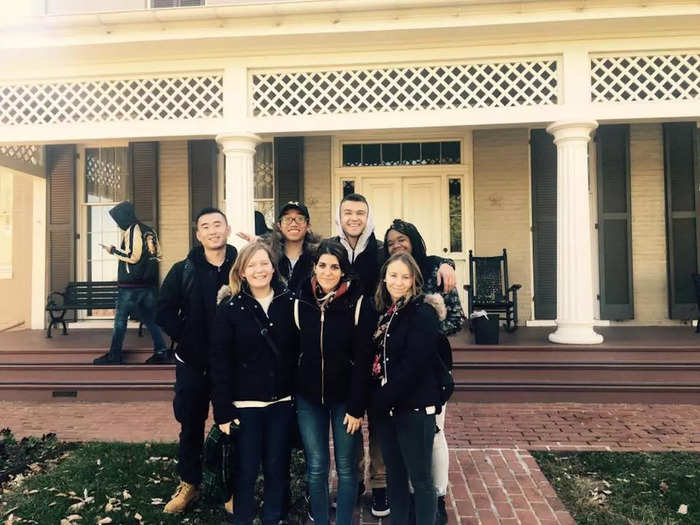
The people at Millersville were some of the friendliest I have ever met.
While Brits are stereotypically more reserved, I did my best to break out of my shyness when it came to making friends in the US.
It wasn't uncommon for me to have chance encounters with others who lived in my building (they usually heard my accent and were intrigued to know where I was from). And usually, by the time I bumped into them again, they were inviting me to dinner with their friends.
The workload was a lot more intense.
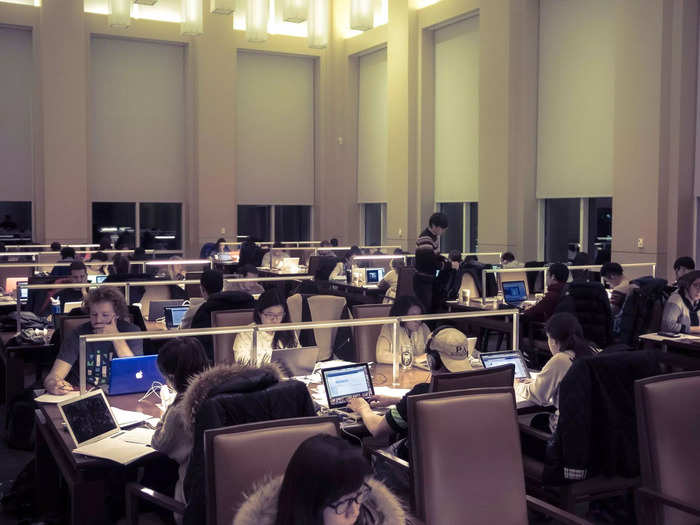
Although I was studying the same subjects at Millersville as I did at Strathclyde, the workload was a complete contrast.
When I was at Strathclyde, I went to classes three days out of the week. Most of the homework was optional, and there was very rarely anybody to hold you accountable.
At Millersville, my schedule was jam-packed. I had classes for several hours every day, and homework every day too. While the work itself wasn't difficult, the quantity of work was more difficult to keep up with, and there was far less independent study.
There were safety buttons on campus.
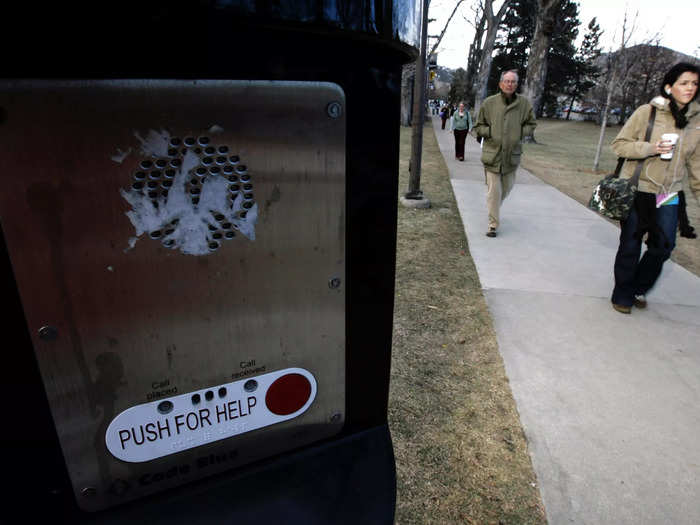
Millersville has a number of emergency phones located near the student dorms. They appeared similar to a street light, with a button that can put students through to the local police if they are in trouble. The university also offers a late-night police escort service for students.
This is something I had never seen or heard of at home in the UK.
The American students I met rarely said "you're welcome."
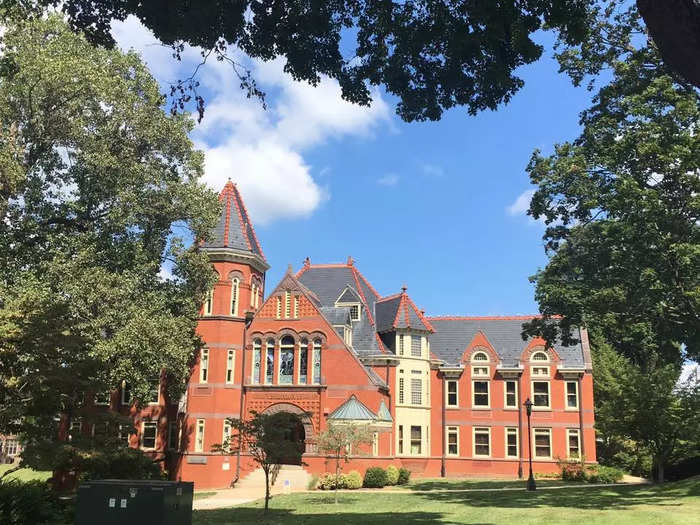
I thought I would be accustomed to the lingo after watching my fair share of American TV series, but I couldn't have been more wrong.
One thing that surprised me was that students at Millersville never seemed to say "you're welcome." For example, on several occasions when I said "thank you," the response would instead be "yep" or "you're fine."
This is something I paid more attention to because of how different it is from the way British people speak. We are sometimes overly cautious about our manners, and say "please" and "thank you" more often than necessary.
Overall, studying in the US was a life-changing experience.
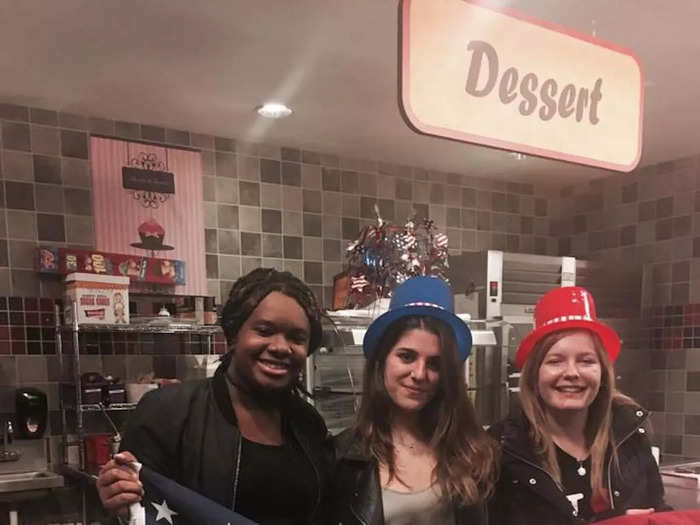
The four months that I spent in the US were incredible, and I made friends for life. While it's been five years, I've kept in touch with my roommates (pictured above) and some of my other friends from the US.
The semester was full of surprises, but I wouldn't have had it any other way. It allowed me to push myself out of my comfort zone and experience things that I would have never been able to in my home country. It's something I'd encourage every student to do if you are given the opportunity.
READ MORE ARTICLES ON
Popular Right Now
Popular Keywords
Advertisement